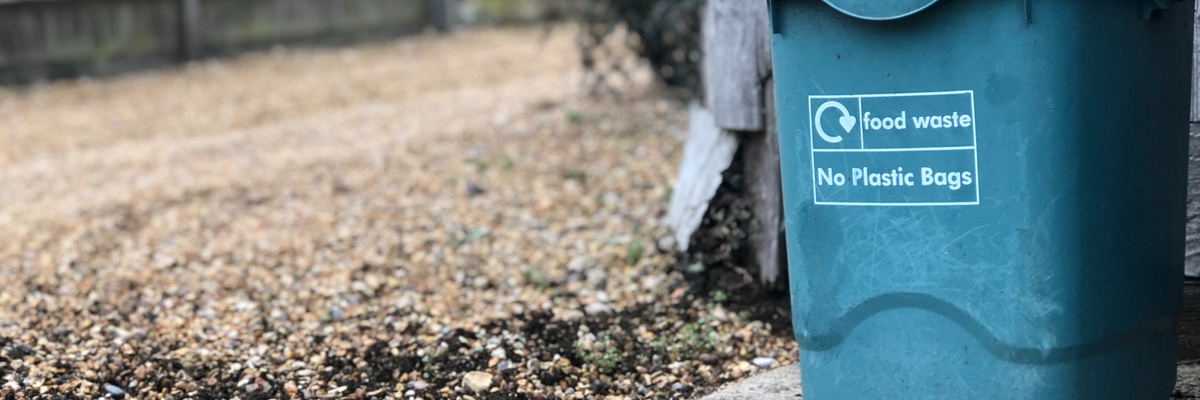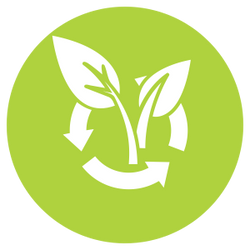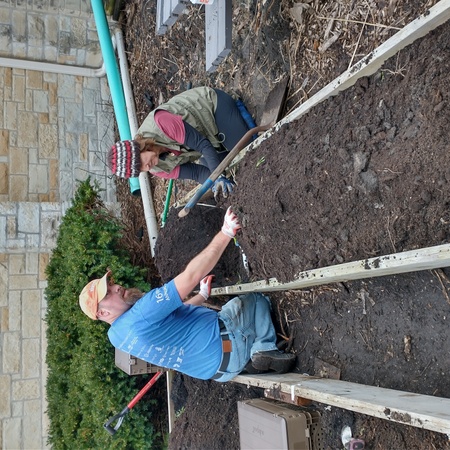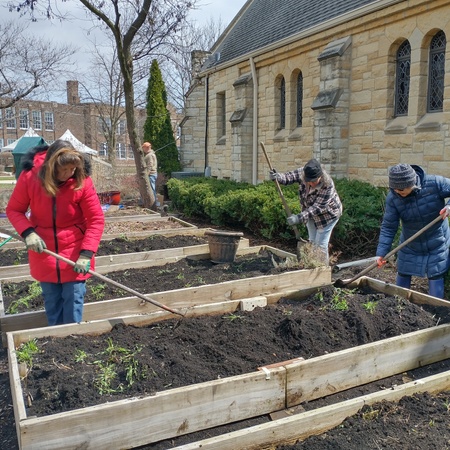Riverside Community Garden Compost Initiative Overview and Community Benefit:
1) Provide over 3,000 pounds of annual capacity for community composting by installing worm composting Subpod bins in the existing Riverside Community Garden raised beds. Subpod is an in-ground compost system and worm farm. It is smell free and rodent proof. Fresh air circulates through the Subpod via ventilation panels, which helps aerobic (odorless) microbes speed up the composting process.
2) Nutrients from the composting Subpods will provide compost to the community garden beds, in which vegetables are grown that are donated to the community. As the worms and microbes breed, they explore the soil, taking particles of compost with them and boosting fertility through each garden bed in which they are installed.
3) Provide a series of hands-on educational composting classes, to promote at-home, and in-the-community-garden composting. Partner with local organizations, such as the Riverside Public Library, to promote this program and these classes. Host school, homeschool, girl scout, and boy scout field trips and get the children in the community involved in composting.
4) Assist local community organizations, such as the Food Pantry, Meals Do Matter, and local schools, in implementing composting solutions for their biodegradable waste, and incorporating composting into their daily activities and school curriculums. Inspire children to understand and become passionate about composting.
5) Reduce the amount of methane produced by this community. Food waste is the largest category of material in municipal landfills, where it creates methane, a powerful greenhouse gas. By starting this composting initiative, along with the education series, we can impact this community’s food waste, reduce the amounts of methane produced.
6) Involve community volunteers in installing and managing the compost bins, building community investment in the initiative.
Funding To Be Used For:
1) Vermicomposting bins
2) Composting worms
3) Aerators, worm blankets, buckets, and other items needed for managing the bins
4) Cold frames and other items needed to winterize the compost bins and keep the worms alive through winter
5) Take-home compost pails for participants
6) Promotional material for education classes and promoting the program
Action Items:
1) Purchase compost bins, worms, and other items needed
2) Install the compost bins at the April 3, 2022 workday
3) Compost team gains experience with these compost bins
4) Create promotional material and actively promote this initiative throughout the community
5) Establish and implement a system to manage and track community drop-offs
6) Set up and teach 4-8 classes and promote them throughout the community
7) Manage the compost bins and expand the compost team with additional volunteers
8) Continue discussions and collaboration with local community groups and schools
9) Create and implement a plan to winterize the compost bins and keep the worms alive through our harsh winters
Covid-19 Safety Plan:
Workdays, educational events, and all other activities associated with this project will be conducted in accordance with local Covid-19 safety guidelines.













